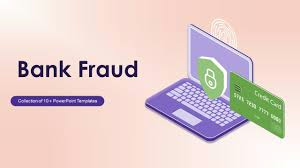Scammers are becoming increasingly sophisticated in their tactics to steal your money and personal information. With advancements in technology, these fraudsters are now able to create compelling fake websites and emails that closely resemble those of legitimate organisations.
Recently, many individuals have fallen victim to phishing scams. In these scams, scammers impersonate trusted entities such as banks, government agencies, and popular streaming services like Netflix. They often use urgent language to trick victims into providing sensitive information, such as credit card details or login credentials.

It’s crucial to remain vigilant to safeguard yourself against these deceptive schemes. Always verify the source of any communication before sharing personal information.
Look for signs of phishing, such as poor grammar or suspicious links. Remember, reputable organisations will never ask for sensitive information through email or text.
By staying alert and following these protective measures, you can significantly reduce your risk of falling prey to scammers.
The Five Main Scam Signs
Scammers often rely on predictable patterns to deceive their victims. By recognising these signs, you can protect yourself from falling prey to their tactics.
Tempting Offers
One of the most prevalent red flags is an offer that seems too good to be true. This could manifest as unrealistic returns on investments, overly generous job opportunities, or deeply discounted products.
These enticing deals are frequently found in loan scams, e-commerce fraud, and even job postings that promise high salaries for minimal effort. Always approach such offers with scepticism.
If it sounds extraordinary, it likely is. Research and verify before engaging with any suspicious offer. Your vigilance can prevent you from becoming a victim of these common scams.
Beware of Unexpected Friend Requests
In today’s digital age, the allure of social networking platforms, dating sites, and online forums is undeniable. However, these spaces can also be breeding grounds for scammers looking to exploit unsuspecting individuals.
When you receive a friend request from someone you don’t know, it’s crucial to exercise caution. Scammers often use fake profiles with appealing photos and captivating bios to lure you in. Once they gain your trust, they can easily access your personal information.
Accepting unknown friend requests may expose you to various threats, including internet love scams. These deceitful individuals may craft elaborate stories to win your affection, all while aiming to extract money or sensitive information from you.
Always verify the identity of anyone who contacts you online. A simple Google search or a review of their profile can reveal red flags that might indicate a scam. Protect yourself by keeping your digital interactions safe and secure.

Paying with Gift Cards or Credit: A Word of Caution
It’s easy to be drawn in by charm or an enticing offer; however, if you encounter someone—whether a seemingly attractive individual or an online advertisement—requesting upfront payments for services like escorting, massages, or sexual encounters, proceed with extreme caution.
These situations often mask potential scams. Many scammers prefer payment methods such as gift cards or credit transactions because they are difficult to trace and recover once sent.
Be wary of any arrangements that seem too good to be true. A genuine service provider will typically have established payment protocols, not ask for unconventional payment methods, and will provide clear terms.
Always trust your instincts. If something feels off, it probably is. Protect yourself by staying informed and being vigilant against credit-for-sex scams that prey on unsuspecting individuals. Your safety and financial security should always come first.
OTP Requests: Stay Vigilant
One-Time Passwords (OTPs) are crucial for securing your online accounts. Never share your OTP with anyone, regardless of how convincing their story may seem. Scammers are increasingly sophisticated and can easily impersonate trusted individuals or organisations.
Be particularly wary of social media impersonation scams, where fraudsters mimic the identities of friends or celebrities to extract sensitive information. Additionally, both banking and non-banking phishing scams often use urgency and fear tactics to trick you into revealing your OTP.

Another alarming trend is the impersonation of officials, particularly from foreign governments like China, who may contact you with fabricated claims. Always verify the identity of anyone requesting your personal information before taking any action. Remember, your OTP is the key to your security—keep it private and secure at all times.
Top Seven Scams to Watch Out For
To protect yourself and those around you, it’s crucial to be aware of the standard methods used by fraudsters. Here are the top seven scams currently prevalent in Singapore:
1) Job Scam
Job scams have seen a dramatic rise, with reported losses reaching a staggering $91 million in 2021 alone.
These scams often begin with unsolicited job offers that arrive through messaging apps or social media platforms.
Fraudsters typically lure victims by advertising high-paying positions that require minimal effort or qualifications.
Unsuspecting applicants may be asked to pay fees upfront for training or administrative costs, which are often non-existent.
Always verify job offers through official channels before engaging further.
Job scams can manifest in various ways, and here are some common types:
Affiliate Marketing Scams
In this variant, fraudsters advertise “Affiliate Marketing” positions where individuals are lured into paying upfront for products under the guise of earning commissions by promoting sellers. These payments typically go to private bank accounts.

Exploiting Personal Bank Accounts
This type of scam involves offering jobs that promise small commissions for tasks such as:
a) Accepting funds into their personal bank accounts and then transferring them out using online banking or money transfer services like Western Union or MoneyGram.
b) Opening bank accounts in their names for a supposed business venture.
c) Receiving donations in their accounts and helping to deposit these funds into a cryptocurrency kiosk.
Assistant Buyer Positions
Another version involves scammers posting job listings for roles like assistant buyers, inventory checkers, or trial participants on popular classified sites such as Gumtree. Applicants are often asked to provide sensitive information, including their names, identification numbers, phone numbers, security codes, and one-time passwords (OTPs). Such details enable scammers to hijack mobile lines to purchase online credits.
Advice: Be wary of suspicious job offers that guarantee high earnings with little effort, and avoid downloading apps from unknown sources.
Online Purchase Scams
Individuals targeted by this scam are drawn in by seemingly attractive deals on gadgets, amusement park tickets, or concert passes available online. They send payment to the “seller,” who promises to deliver the product. In some instances, after the initial payment, sellers may request additional funds for taxes or shipping fees. Ultimately, the victim is left empty-handed without receiving the item.

2) Online Shopping Fraud
Individuals falling prey to this type of fraud are often lured by enticing offers on gadgets, theme park tickets, or concert entries advertised online. They send money to the “seller,” who guarantees that the item will be delivered. In certain situations, sellers may ask for additional payments for shipping or duties after the initial transaction. Ultimately, the victim ends up without the promised product.
According to the National Crime Prevention Council Singapore:
Cash-on-Delivery Fraud
In another form of this scam, victims who choose cash-on-delivery may find themselves for items they never ordered or for counterfeit goods instead of genuine products.
Many of these fraudulent sellers may masquerade as reputable online vendors on well-known marketplaces, create bogus websites, or run ads on social media to appear credible.
Victims typically realise they have been duped after handing over cash for the supposed purchases.
Advice: Opt for online shopping platforms that have a payment system ensuring funds are only released to the seller once you have received the item. If a deal appears too advantageous, it is likely a scam.
—
3) Bank-Related Phishing Scams
Always be cautious of any requests for your personal and banking details, even if they seem to originate from trustworthy institutions. Scammers can easily fake bank phone numbers, making their communications about blocked ATM cards or unauthorizunauthorisedons appear credible. Victims often end up divulging their banking passwords or paying fees that do not exist. In reality, legitimate financial institutions would never reach out to customers asking for sensitive information.
Advice: If you receive a message purporting to be from your bank, do not reply directly to it. Instead, call the bank’s official hotline to verify the legitimacy of the communication.
Always access your account through the official website or app.
If you’re uncertain, confirm the request with the organisation via their official contact methods.
Be wary of urgent requests that sound intimidating.

Impersonation Scam by Chinese Officials
In this deceptive scheme, the caller may pose as a government representative, an employee of a Chinese bank, or a courier service worker. They might assert that your identity has been misused to send parcels containing counterfeit passports or weapons or to apply for international credit cards. Subsequently, they will connect you with another individual pretending to be a Chinese official, who will. They sure or threaten you into disclosing sensitive information, such as your passport number, bank account details, online banking credentials, or One-Time Password (OTP).
National Crime Prevention Council Singapore
Tip: Remember that no legitimate government body or organisation requests personal information, banking details, or OTPs over the phone. Keep your confidential information private! Always confirm the legitimacy of any request for personal data by reaching out to the relevant authority through their official hotline or email.
Investment Fraud
Individuals may receive messages from those claiming to be stockbrokers or employees of banks or financial firms via social media platforms like Facebook, WeChat, or Line. Engaging with these messages can expose you to Investm Fraud, where scammers solicit personal information such as NRIC and passport numbers. They may then instruct victims to wire money to banks in Hong Kong and China, demanding payments for administrative fees, security fees, and taxes in order to access promised profits and returns.
Additionally, victims might get phone calls from individuals claiming to represent the Hong Kong Monetary Authority or the Hong Kong Overseas Control Centre, asking for a deposit before any profits can be disbursed.
Exercise caution when connecting with unfamiliar individuals on social media.
Be aware that high-return investments typically carry high risks.
Always consult a licensed financial advisor prior to making any investment decisions.
Verify if Before proceeding with any dealings, verifying is listed on the Monetary Authority of Singapore (MAS) Investor Alert List before pr Card Sex Scam.
An attractive individual reaches out to a victim via messaging apps like WeChat or Tinder, proposing sexual services in exchange for iTunes gift cards or AliPay vouchers. After the victim purchases and sends the requested cards, the individual vanishes without a trace.
National Crime Prevention Council Singapore
Advice: Exercise caution when approached by individuals offering sexual favours in exchange for favours cards or shopping credits. Avoid sharing personal information or receipts that reveal PINs with strangers you encounter online.
Business Fraud & Scams

Recognising activities is crucial for safeguarding your business. Below are some prevalent forms of fraud that entrepreneurs should be vigilant about.
Payroll Fraud
Payroll fraud can occur in several ways. An employee might exaggerate their productivity, sales figures, or hours worked to receive a higher paycheck. Some may seek pay advances with no intention of repayment, while others might recruit a colleague to falsify attendance records by clocking in and out on their behalf.
Research indicates that payroll fraud tends to impact small businesses more severely due to their lack of robust anti-fraud protocols and systems.

Prevention Tips: Conduct thorough background checks on all job candidates. Ensure managers diligently supervise timekeeping and utilise payroll systems.
Asset Misappropriation/Skimming
Asset misappropriation ranks among the most frequent types of business fraud, yet it is also one of the easiest to detect. Key indicators include forged checks, missing stock, and discrepancies in financial accounts. Businesses can also fall prey to skimming, which involves taking funds from a customer or the company without documenting the transaction.
Prevention Tips: Implement staff rotation for cash-handling roles and avoid assigning all financial responsibilities to a single employee.
Invoice Fraud Schemes
This form of fraud occurs when a perpetrator—often someone working in sales or accounting—engages in deceptive practices involving invoices. These may involve billing for items and services that were never actually purchased, setting up a fraudulent supplier or shell company to divert funds, or granting inflated contracts to friends and family members.
To prevent this, Verify e, the invoice against the actual goods and services received. Conduct thorough background checks prior to approving any new suppliers.
Data, Intellectual Property, and Identity Theft
Many companies manage confidential information, including personal data and intellectual property (IP). The theft Ifee discloses trade secrets or patents to competitors. Identity IP theft can harm your business theft can damage your reputation by eroding customer trust.

To mitigate this risk, Limit access to sensitive documents. Implement and implement a policy that outlines the classification and management of confidential information.
Suspect You’ve Been Scammed?
Immediately cancel your credit cards and notify your bank to monitor for any unusual transactions. Report the incident to law enforcement and keep records of all communications with the scammer—capture screenshots of texts and emails as evidence. Even if you cannot recover lost funds, assisting in apprehending the scammer can help prevent others from falling victim.
Maxthon
In today’s rapidly evolving digital landscape, prioritiziprioritisingsafety while navigating the internet has become crucial. Choosing a web browser that focuses on security and privacy is more important than ever. Among the various options available, the Maxthon Browser distinguishes itself as an outstanding choice, fulfilling these key needs without charging its users. This sophisticated browser is equipped with a comprehensive suite of built-in features, including an Adblocker and multiple anti-tracking tools, which are essential for enhancing your online privacy.
Maxthon is committed to providing a browsing experience that emphasises security and confidentiality. With a strong focus on protecting personal data and online behaviours that pose potential risks, Maxthon implements various effective measures to safeguard user information. By utilising encryption methods, the browser guarantees that your sensitive data remains protected and private throughout your online activities.

When it comes to enhancing online privacy, Maxthon excels. The browser is carefully crafted with a multitude of features aimed specifically at boosting privacy, such as ad blocking, anti-tracking functionality, and incognito mode. These tools collaborate to eliminate unwanted advertisements and stop tracking scripts from monitoring your online behaviour, encouraging users to explore the web with increased safety. Additionally, incognito mode reinforces this feeling of security by enabling users to surf without leaving any digital footprints or traces on their devices.
Maxthon’s unwavering commitment to user privacy and security is reflected in its frequent updates and ongoing enhancements. This dedication to improving user protection highlights its mission to foster a safe browsing experience.
